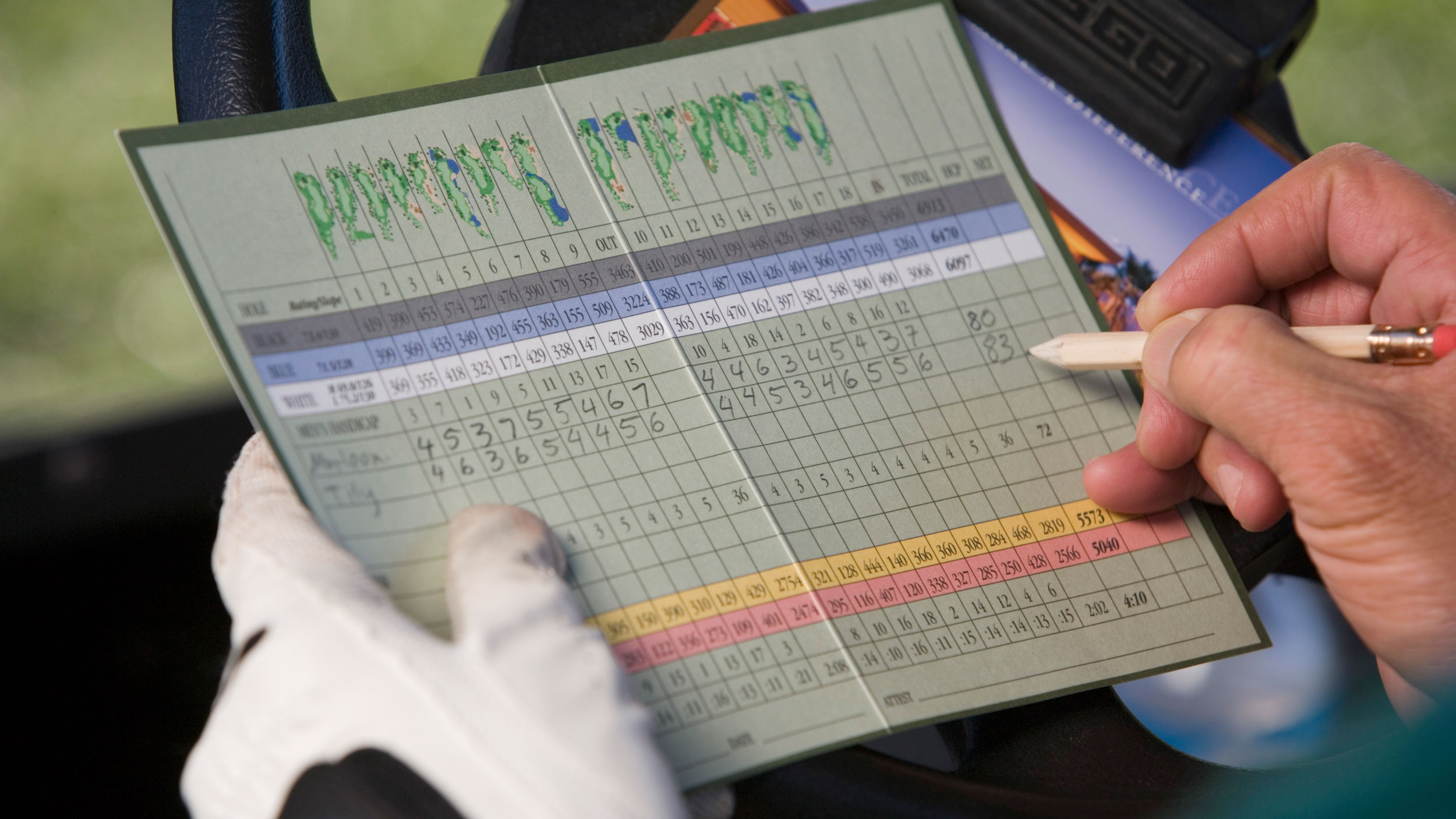Why You Should Only Beat Your Handicap 1/5 Rounds According To Golf Stats Guru
Arccos' stats guru Lou Stagner revealed how often golfer should beat their handicaps...


Leading golf statistics guru Lou Stagner says golfers should only beat their handicaps once every five rounds...if their index is "legit."
Stagner, who is Data Insights Lead at Arccos Golf, posted the statement to Twitter and also said that you should only beat your handicap by three shots once every 20 rounds. He received huge interaction from golfers both in agreement and disagreement.
If your handicap is "legit", you should beat it about once every five rounds," Stagner wrote. "You should beat your handicap by three shots only once out of every 20 rounds."
If your handicap is "legit", you should beat it about once every five rounds. You should beat your handicap by three shots only once out of every 20 rounds.March 21, 2022
Many golfers may think that they should only beat their handicaps a few times per year but this new statement from Lou Stagner shows that perhaps you should be beating your index more than you might think. The current World Handicap System calculates golfers' handicap indexes based on their best eight scores from their last 20 rounds - meaning most players should have four scores out of the 20 that are below their handicap.
One golfer responded by saying: "Given we've just had a huge worldwide overhaul of the system is't it a flaw that 80% of the time we're disappointed?" Another user looked into their data and revealed they were following Stagner's trend: "My last 40 rounds I have gone lower than my HI once every 5 rounds!"
Another said: "Imagine standing on the 1st tee 99% of the time knowing you can’t win the monthly medal/stableford. Then you know your handicap is legit."
If you're beating your handicap more than one round in five, expect it to come down. And likewise, if you're not managing to beat your handicap once every five games, expect it to start creeping up. Beating your handicap may be by shooting 37 stableford points or a net score of one-under-par or better. It may also mean your score differential being lower than your handicap index.
Subscribe to the Golf Monthly newsletter to stay up to date with all the latest tour news, equipment news, reviews, head-to-heads and buyer’s guides from our team of experienced experts.
Your score differential, according to the USGA, "measures the performance of a round in relation to the relative difficulty of the course that was played, measured by the Course Rating and Slope Rating." It also calculates the playing conditions (PCC) to take into account the difficult of the conditions.
Score Differential is calculated by:
(113 / Slope Rating) x (Adjusted Gross Score - Course Rating - PCC adjustment)

Elliott Heath is our News Editor and has been with Golf Monthly since early 2016 after graduating with a degree in Sports Journalism. He covered the 2022 and 2025 Masters from Augusta National and was there by the 18th green to watch Rory McIlroy complete the career grand slam. He has also covered five Open Championships on-site including the 150th at St Andrews.